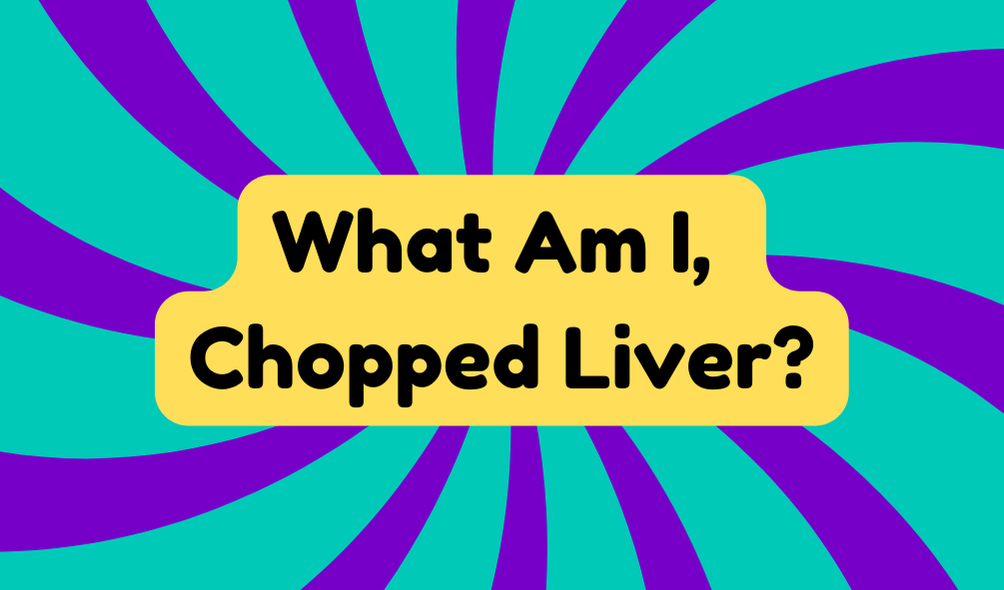The phrase "What am I, chopped liver?" expresses feelings of neglect and a craving for recognition. It often surfaces in situations where an individual feels overlooked, such as during team events or family gatherings. The term has roots in the perception of liver as an unwanted food, historically relegated to pets, hence symbolizing devaluation. Today, it resonates with many who sense competition for attention in social spheres. This expression highlights the human need for acknowledgment, encapsulating the emotional weight of being sidelined. Understanding its context reveals deeper insights into social dynamics and the pervasive need for appreciation.
Synonyms
The phrase "What am I, chopped liver?" serves as a poignant expression of feeling overlooked or undervalued in social contexts. This idiom resonates deeply, often prompting one to seek synonyms and alternative expressions that mirror its essence. Consider the following options:
- "Am I invisible?"
- "Do I not matter?"
- "What about me?"
- "Can't you see me?"
These alternatives encapsulate sentiments of neglect and the desire for recognition. Understanding these synonyms enriches conversational language while highlighting an ongoing social dynamic. Each expression carries both nuance and depth, revealing underlying emotions that often accompany feelings of exclusion. By integrating these options into discourse, individuals cultivate a more expressive environment, ultimately fostering connections and dialogue essential to personal and professional interactions.
Example of Sentences
Expressions that convey feelings of being overlooked can enhance understanding in various social scenarios. They reflect emotional neglect and highlight culinary perceptions that are sometimes poignantly underestimated. Here are examples illustrating this phrase's versatility:
- "During the team lunch, while everyone praised Sam's presentation, I felt invisible… what am I, chopped liver?"
- "After working tirelessly on the project, my contribution went unnoticed… what am I, chopped liver?"
- "At family gatherings, they always rave about my sibling's cooking, leaving my dishes unappreciated… what am I, chopped liver?"
- "In a room full of accolades, I stood silently, wondering… what am I, chopped liver?"
These sentences exemplify the expression's cultural resonance, revealing the starkness of emotional neglect in both personal and professional contexts.
Origin
Chopped liver has a culinary history that may shed light on the origins of this phrase. Two main theories suggest its roots. The first posits that liver, often considered undesirable and frequently discarded, reflects social dynamics where people feel less valued. Traditionally, it was viewed as fit only for pets, further supporting this notion. The second theory suggests chopped liver's role as a side dish, indicative of its lower status in formal dining compared to main courses. Its first known use in print occurred in the 1971 comic strip "Winthrop." These insights contribute to our understanding of how food and status intertwine, highlighting feelings of neglect and the often-overlooked emotions surrounding social interactions.
Collocations
In discussing the phrase "What am I, chopped liver?" it is essential to explore various collocations that enrich its meaning and context. The phrase serves as a powerful emotional expression related to neglect, revealing underlying feelings of inadequacy. Significantly, analyzing collocations with "chopped liver" provides insight into how this expression resonates in social interactions.
- Feeling like chopped liver
- Treated like chopped liver
- Overlooked like chopped liver
- Underappreciated, like chopped liver
These collocations emphasize a sense of being undervalued or ignored, enhancing our understanding of its emotional weight. This highlights not only individual experiences of neglect but also encourages a dialogue about the implications of attention within relationships and social dynamics.
How to Use in Everyday Language
Utilizing the phrase "What am I, chopped liver?" in everyday language can effectively convey feelings of neglect or being overlooked in various social situations. This expression serves as an emotional outlet, especially in moments when individuals feel undervalued. For instance, in workplace dynamics, one might utter the phrase after witnessing colleagues receiving accolades without similar recognition, highlighting unfairness in attention distribution. In everyday scenarios, using this idiom can facilitate discussions about emotional expression and interpersonal relationships. However, it's essential to be judicious in its application; overuse may dilute its impact. Recognizing when to invoke this phrase can enhance communication, fostering awareness of emotional undercurrents that frequently shape our social interactions in nuanced ways.
Why Is It Still Relevant Today?
Although societal norms and communication styles have evolved, the phrase "What am I, chopped liver?" remains relevant today due to its ability to articulate feelings of neglect and competition in various social contexts. Its cultural impact is profound, resonating with individuals who feel overshadowed or undervalued, often in professional or personal scenarios. The phrase captures emotional relevance by highlighting human experiences tied to recognition and worth. In an era marked by rapid change and heightened competition, people continue to seek acknowledgment, thereby sustaining the phrase's significance. By reflecting on our interactions, we can better understand dynamics of attention and appreciation—elements that remain critical to human connection and social cohesion in contemporary life.







